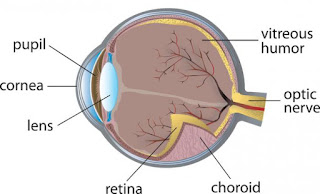What are the common causes of eye pain?
Eye pain can have a variety of causes. It is typically divided into conditions that affect the cornea, conditions that affect of other parts of the eye, and conditions involving other areas of the body that cause pain to be felt in the eye area.
Common causes of eye pain typically center around particular parts of the eye. These include the cornea, the white of the eye (sclera), and a thin layer that covers it called the conjunctiva. The colored part of the eye is the iris.
The muscles that control the eye, the nerves, and the eyelids can also be sources of eye pain.
A problem with the cornea is the most common cause of eye pain. The cornea is the outermost layer of the eye. It has a clear dome-shaped surface that covers the front of the eye.
Many disorders that affect the cornea also affect the fluid-filled space between the iris and the inner part of the cornea.
The cornea acts as a direct barrier keeping out dirt, germs, and other harmful or foreign particles that could harm the eye. The cornea is also very helpful in filtering out damaging ultraviolet light (UV) from the sun.
Corneal disorders include:
- Herpes simplex keratitis: An eye infection caused by the herpes simplex virus.
- Bullous keratopathy: An eye disorder marked by blister-like swelling of the cornea. Blisters can rupture causing severe pain, eye discomfort, and vision impairment.
- Peripheral ulcerative keratitis: An eye disorder that causes inflammation and ulceration of the cornea. Typically occurs in people who have connective tissues diseases, such as rheumatoid arthritis.
- Corneal ulcer: An eye infection that causes an open sore on the cornea. Contact lenses, injuries, drugs, and nutritional deficiencies can cause open sores. Ulcers cause pain, redness, and tearing.
Just like other body parts, the cornea can heal from minor injuries or scratches. The area usually heals on its own with no lasting impact on vision.
Deeper injuries can cause corneal scarring resulting in a haze on the cornea that can impair vision. People who have a deep injury or corneal disease may experience:
- pain in the eye
- sensitivity to light
- reduced vision or blurry vision
- redness or inflammation in the eye
- headache
- nausea or fatigue
- bulging of an eye
- inability to move eye in all directions
People who have corneal disease or damage may experience pain, tearing, and a decrease in the sharpness of their vision.
Anyone experiencing any of these unusual eye symptoms should contact an eye professional immediately. Corneal disease or other eye disorders can only be diagnosed after a thorough eye examination.
A slit lamp is commonly used to examine the cornea and eye area. This instrument allows the doctor to examine the eye under exceptionally high magnification. Eye drops called fluorescein may be used to provide a temporary stain to the areas of the cornea, making it easier for the doctor to see.
Doctors may even scrape the surface of large ulcers present in the eye to obtain a sample. The sample is cultured and used to identify whatever is causing the infection.
Once the cause has been identified, the doctor can decide on the best drug to fight the infection. Common eye treatment includes:
- antibiotic or antifungal drops
- pain relief with eye drops, oral drugs, or both
- removal of foreign bodies
- transplantation of the cornea
The most common injury to the cornea is due to abrasions caused by foreign objects.
Abrasions can be caused by:
- particles from the wind
- working with tools or any other type of debris
- fingernails
- contact lenses
- make-up applicators
Once the foreign objects are removed, they may leave minor scratches on the cornea. The surface cells of the eye grow back rapidly, so most scratches usually heal within 1 to 3 days.
However, a medical evaluation can determine if the cornea is scratched and prompt treatment with antibiotics can prevent an infection.
Pain relief medication in the form of eye drops is also routinely prescribed.
A follow-up examination by an eye specialist after the injury is also recommended.
Are you searching the best eye specialist in Indore for Cataract surgery? If your answer is yes, so come at Indore India Eye Care hospital Indore, where on Dr. Birendra Jha is one of the best Eye surgeons in Indore. Dr. Birendra Jha is 22 years experienced Cataract surgeon in Indore. Book an Appointment today visit on online website - http://www.indoreindiaeyecare.com/ and call us 9977141260.
Online Book an Appointment today :- https://www.indoreindiaeyecare.com/contact-us.html
Please go through our social media :
like our page to know more about eyes
Facebook :- https://www.facebook.com/eyeclinicsinIndore/
Please do follow on Instagram
Instagram :- https://www.instagram.com/indoreindiaeyecare_/
To More Post: - What you need to know about cataracts?




Comments
Post a Comment